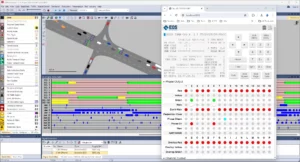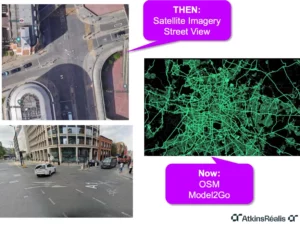New research by global transport modelling company suggests that autonomous vehicles in a mixed fleet of traffic could transform the operation of the network.
In a paper published in Transportation Research Record: “Modelling the effects of autonomous vehicles on motorway performance, ” authors George Mesionis, Mark Brackstone and Natalie Gravett report modelling detailed interactions among vehicles as part of the HumanDrive project.
They modelled a stretch of the M1 near Sheffield to investigate the effects of autonomous vehicles on the operation of a real network under various traffic conditions where the overall effects may be revealed, both as advantages to AV drivers, and potentially disadvantages to non-AV traffic.
They also examined how these affect junction operations and net emissions. Preliminary results suggested positive effects of AVs which increase with the penetration.
They found overall network benefits with fewer delays and less queueing at congested arms of junction roundabouts and better performance at lane merges.
However, they say, it is clear that there are points of inflection where benefits start to slow. “It is at these (high) penetration rates that initial operational assumptions may become increasingly stretched and additional infrastructure and cooperative systems are likely to have to become prevalent,” they say.





















